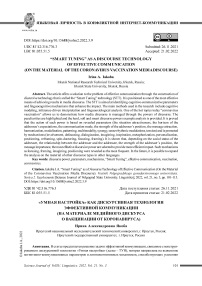“Smart tuning” as a discourse technology of effective communication (on the material of the coronavirus vaccination media discourse)
Автор: Iakoba Irina A.
Журнал: Вестник Волгоградского государственного университета. Серия 2: Языкознание @jvolsu-linguistics
Рубрика: Языковая личность в конфликтной интернет-коммуникации
Статья в выпуске: 3 т.21, 2022 года.
Бесплатный доступ
The article offers a solution to the problem of effective communication through the construction of discursive technology that is called the “Smart Tuning” technology(STT). It is positioned as one of the most effective means of achieving results in media discourse. The STT is aimed at identifying cognitive-communicative parameters and linguocognitive mechanisms that enhance the impact. The main methods used in the research include cognitive modeling, inference-driven interpretation and linguoaxiological analysis. One of the hot topics today “coronavirus vaccination” allows us to demonstrate how media discourse is managed through the powers of discourse. The peculiarities are highlighted and the hard, soft and smart discourse powers example analysis is provided. It is proved that the action of each power is based on revealed parameters (the situation attractiveness, the horizon of the addressee's expectations, the communication mode, the strength of the addresser's position, the message attraction, harmonization, modalization, patterning, multimodality, synergy, sense-rhythmic modulations, tension) and is promoted by mechanisms (involvement, defocusing, dialogization, imagining, inspiration, metaphorization, personalization, positioning, reframing, spin-doctoring, focusing, framing). It is shown that, depending on the social status of the addressee, the relationship between the addresser and the addressee, the strength of the addresser's position, the message importance, the most effective discursive power are selected to provide more efficient impact. Such mechanisms as focusing, framing, imagining, positioning were revealed as the most frequent. In the future, it is possible to expand the analysis on the material of other discourse types in other languages.
Discourse power, parameters, mechanisms, smart tuning, effective communication, vaccination, coronavirus
Короткий адрес: https://sciup.org/149140537
IDR: 149140537 | УДК: 81'42:316.776.3 | DOI: 10.15688/jvolsu2.2022.3.9
Текст научной статьи “Smart tuning” as a discourse technology of effective communication (on the material of the coronavirus vaccination media discourse)
DOI:
The influence on public consciousness, a change in attitudes in communication towards dominance based on masked latent impact is increasing in modern media discourse. Deepening the analysis of the semiotic interaction of a person and language, the role of language in changing social reality testifies to the awareness and evaluation of the influence and the communicative situation control.
The relevance of the study lies in the importance of developing a dynamic approach to the analysis of discourse to identify the power of language (discourse) in the modern media space when modeling cognitive and communicative parameters, linguistic and cognitive mechanisms, and discursive powers that contribute to efficiency. The discourse power is a measurement of the impact intensity, expressed in the ability to cause acceleration or deceleration of reactions and semantic transformations and act as an attractor in the process of signs creation and functioning, correlates with the gradation of the discourse potential in terms of soft, hard and smart powers. The media space is becoming more and more dynamic, technological, intellectual, capable of discursively constructing “possible realities” [Stepanov, 1995]. The problem of media discourse effectiveness development in this study is to reveal the “smart” way of constructing events in social reality. The event is viewed as “изменение видения мира” (eng. “a change in the vision of the world” [Arutyunova, 1988, p. 169] in the coordinates of the constructed communicative-discursive space in accordance with its cognitive and axiological purpose. Addressing the dynamic aspects of communication and discourse implementation requires solving problems associated with procedural concepts power, influence, domination, control that are considered in this article.
The aim of the study is to model the technology for managing the media communicative space, set as the “Smart Tuning” technology (hereinafter STT).
The theoretical basis of the research was compiled by the concepts of synergetics and linguosynergetics [Haken, 1980]; the concepts of axiology [Ilyin, 2005]; integration model of mixed/ blend space [Fauconnier, Turner, 2006]; the theory of semiosis tension [Greimas, Fontanille, 2007]; the category of variability of signs when they realize their symbolic function and interpretability of meanings [Phillips, Jorgensen, 2004]; theory of discourse and discourse formation [Foucault, 1996]. The concepts that serve as the basis for this study include the concept of regulation of relations by soft, hard, smart powers [Nye, 2004], the concept of the power of discourse [Dijk, 2013], the concept of axiological parameterization of discourse [Serebrennikova, 2013], the concept of technologization of discourse [Plotnikova, 2011], the idea of parametrizing media discourse as “the Smart Tuning technology” [Iakoba, 2017].
The ideas about dominant, governing, functional property of discourse for understanding, evaluating and acting, acquiring eventfulness in social practice are found in the works of various authors (N.D. Arutyunova, R. Blakar, T. van Dijk, G. Lasswell, M. Foucault, V.E. Chernyavskaya, R.O. Yakobson, E.I. Sheigal). The problem of how a person creates social reality and how this reality creates a person is developed in the concept of social construction of reality [Berger, Luckman, 1995]. The study of the relationship between human thinking, realized by language, and the construction of the effectiveness of social practices becomes the subject of this analysis.
The questions related to the explanation of the eventfulness of discourse as language functioning in communication are being developed in cognitive linguistics. In accordance with the cognitive-discursive concept, an event in the media is a complex unity constituted by a reference event, an eventidea, and a text event [Demyankov, 2001]. The epistem “power of discourse”, having the status of a cognitive metaphor of a synergistic plan, is formulated in a critical analysis of discourse [Fairclough, 1989]. The power of discourse is interpreted as the ratio of power in communication, and power as the degree of intensity of influence. At the same time, power is interpreted as standing “behind the language” and as power “in the language itself” [Fairclough, 1989, р. 43]. The centers of power in the communicative space provide the influencing potential of discourse, which is indirectly indicated by T. van Dijk: “power is associated with control, control over discourse means access to its production, to its content, style and public consciousness” [Dijk, 2013, p. 15]. Thus, it becomes possible to develop the idea of revealing the power of the discourse in communication management by adjusting the discourse and realizing the power potential in communication.
Material and methods
The work employs the methodology of discourse analysis based on a dynamic approach and the principle of constructivism; cognitive modeling is aimed to create models for the mental structures reconstruction behind the word;
inference-driven interpretive analysis assumes that the values are computed by the interpreter and not contained in the language form, after that the conclusions are made; linguoaxiological analysis reveals the axiological components of the text, the system of values and assessments, the interpretation of reality and the value picture of the world; allows you to describe the stereotypes of discourse, implications, categories of norm and evaluation, which serve as ways of objectifying values; deconstruction method [Derrida, 1992] reveals the contradictions between logic and rhetoric, between the meaning contained in the text and the fact that it (the text) is forced to mean the intermediary language; that is, it recognizes the play of text against meaning. The methodology used is aimed at “identifying the structural relations of domination, power and control, expressed in language, indirect negative assessments in judgments that contribute to the creation of preconceived opinion in discourse” [Vodak, 2011, p. 290].
Results and discussion
The modern media discourse that can be easily reached in the Internet from any geographical urban location is chosen as the object of the research because it is eye-catching, attractive, draws attention, gives multiple points of view and different values. It is characterized by the fact that it does not only deliver messages but creates discursive events that are recognized by a mass addressee. When modeling media discourse, the characteristic “smart” in combinations smart tuning , smart power acquires special significance. It should be pointed out that “smart” is understood as a qualifier of effective interaction, as the ability to recognize hidden meaning, as the ability to evaluate messages, construct events, and achieve results due to its technological effectiveness.
The “Smart Tuning” technology is developed as an effective means to find out the ways of dominance in discourse. It reveals the discourse constructive potential in terms of demonstrating the addresser power, the addressee’s readiness to obey or oppose and the ability of discourse to create an event. The discourse constructive potential is shown by inferring cognitive mechanisms hidden by language. The STT is aimed to reveal the discursive power that is divided into soft, hard and smart powers created in a promotional, active action discourse. The STT is based on communicative external and internal parameters that help to get a deeper axiological understanding of the discursive event, fact or message. These parameters activate certain linguocognitive mechanisms that are used to create a specific effect in a discourse.
The idea of existence of external and internal parameters is brought by Haken originally [Haken, 1980, p. 37] and is developed in this research. They are systematized according to their belonging to the factors involved before the discourse was realized or in the course of discourse. The synergistic potential of the selected parameters is the power of discourse.
The power behind the discourse is reflected by the external parameters of the STT. They depend on the conscious, strategic activity of the addresser, influence the perception and comprehension of the addressee, orient their interpretative cognitive processes in the right direction of constructing understanding, accepting a point of view, vision of the world [Iakoba, 2019b, p. 96]. The external parameters include: 1) the power of the position of the addresser, which determines the strength in a communicative situation and the strength of the influence, management of the situation, in particular, status, authority, charisma; 2) the attractiveness of the situation, eventful with risks for the future; 3) the communication mode implemented by the subject – truly dialogical, opening a dialogue of consciousnesses or monodirectional; 4) the horizon of the addressee’s expectations, which makes it easier to pass cognitive filters. The expectation horizon means “a set of psychological, socio-political, aesthetic and other ideas that determine the reader’s attitude and perception of the work” [Tsurganova, 2001, pp. 872-875]. In the analysis of discourse, this term explains the relationship of the addressee to the media message, the passage of filters for the perception of the media message and the possibility of expanding the horizon of the addressee.
The power emanated from the process of discourse reflects the internal parameters of the STT. They give power to the discursive position, that is, the power to the promoted, structured point of view that constructs discourse in the intellectual space. The internal parameters of discourse include: message attractiveness, harmonization, modalization, patterning, multimodality, sense- rhythmic modulations, tension [Iakoba, 2019b, p. 96]. The highlighted STT parameters act rationally and suggestively, synergistically affect the values, knowledge, emotions of the addressee, penetrating into the subconscious mind, transforming the meaningful and life concepts of the addressee.
The characteristic of power action lies in the ability to streamline the situation in one’s own interests, to influence the system of sociocultural filters, deep, unconscious beliefs, needs and desires. The power is associated with the transmission of informative messages in discourse, providing a playful effect of power (according to M. Foucault). The purpose of power is to push the addressee to perception and conceptualization in a certain way. The discourse power is expressed in the ability to cause processes of acceleration or slowing reactions and sense transformations, thus acting as an attractor in the process of generating and functioning of symbols. It correlates with the gradation of the potential of discourse in terms of soft, hard and smart powers. The definitions of the specified powers through the prism of the STT in the media discourse are presented below.
Smart power , as a cognitive-discursive structure with an influencing potential, manages interaction with the addressee, and is aimed at coordinating discourse actions with the expectations by reaching the emotional-affective level at some reference points; using arguments of intellectual value it masks latent factors.
Soft power , as a cognitive-discursive structure with an influencing potential, controls communication that is focused on a dialogical mode of communication, it avoids no-compromise statements, qualifications, evaluations, perspectives, overcomes cognitive filters by making common cause with the cognitive system of the target addressee in accordance with the value concepts and focus.
Hard power , as a cognitive-discursive structure with an influencing potential, controls communication, overcoming the addressee’s rebellion, presents a mandatory, categorical qualification of a discourse topic; uses a monologue, one-way communication mode, intensifies epistemic modality in the argumentation of the main thesis.
The action of the above mentioned discursive powers is presented in discourse through a number of linguocognitive mechanisms, that were described in detail in the author’s previous research [Iakoba, 2017], namely, involvement, defocusing, dialogization, imagining, inspiration, metaphorization, personalization, positioning, reframing, spin-doctoring, focusing, framing. Involvement is a mechanism that takes the addressee into commercial, advertising or other activities. Defocusing is a mechanism aimed at removing “undesirable” properties of the referent from the communicants attention focus and in some cases leading to recategorization as a decrease in the rank of cognitive isolation of the language semantics elements of the units and expressions, i.e. their transition from the primary focus to the secondary focus or into an implied background. Dialogization is a mechanism in which the proposed dialogue is updated. It is manifested in the question-answer style of presentation, which enhances the effect of the addresser and the addressee views closeness, concern for improving the social position of the latter. Imagining is a visualization mechanism for presenting ideas by describing vivid sensory images, pictures of the future, present or past that can evoke certain emotions: anger, fear, pride, desire to imitate, etc. There are the subclasses as positivization, dramatization, distortion, hyperbolization, reduction, intensification. Inspiration is a mechanism in which the ability to inspire and motivate is actualized. Metaphorization is a mechanism that allows you to comprehend some concepts based on others that serve as a standard. Personalization is a mechanism aimed at establishing close, trusting relationships with the addressee by shifting the boundaries of official communication to friendly communication, switching to first-name terms, telling stories from personal life, as if the addressee is a friend with whom the addresser shares personal news. Positioning is a mechanism aimed at establishing positions: natives – strangers, good – bad, friends – enemies etc. There are the subclasses as unity, opposition, parallelism, distancing. Reframing is a mechanism aimed at intentionally moving from one frame to another through the drifting of concepts and axiological shift. Spin-doctoring is a mechanism that is based on a deliberately biased or false presentation of an event or fact. Focusing is a mechanism aimed at drawing attention to one part of reality is often accompanied by a shift in semantic accents, modality, and evaluation. Framing is a mechanism for representing knowledge and opinions about a certain typical situation or phenomenon in certain coordinates, in the structure of a certain framework.
The action of the highlighted powers, objectified in social multimodal slogans and stickers in English, dedicated to the vaccination against coronavirus around the world are demonstrated below.
The functioning of smart power can be operationalized by different combinations of linguocognitive mechanisms based on addressee’ attraction in the event and keeping involved, forwarding to the planned destination. The smart power lets the addressee think of the independent choice that has been made under the influence of embedded ideas. The examples 1 and 2 (Figs. 1, 2) based on smart power demonstrate synergetic effect of such mechanisms as dialogization, imagining, inspiration, involvement, personalization, positioning, focusing and framing.
Example 1 is taken from Atlanta JournalConstitution (USA) that explains:
-
(1) Now that Americans are receiving the first vaccines for the coronavirus, the Atlanta-based Centers for Disease Control and Prevention is encouraging employers to print stickers for their workers who have been inoculated (I).

Fig. 1. Example 1: I got my COVID-19 vaccine! We can do this
The smart power of example 1 is revealed by drawing attention to the problem as if discussed among friends. The conversation utterance is constructed with the 1st person singular I as the subject of the sentence. External parameters of the dialogue mode of communication and the attractiveness of the situation determine the intentional tuning, which manifests itself in a way, promoting an important topic of conversation, involving the addressee in the dialogue by activating the dialogization mechanism. The goal of the campaign is to convince the addressee of the need to get the coronavirus vaccine and of its safety. The internal parameters of the technology include the message attraction, the multimodality, that determine the control come from the discourse. The parameters are manifested by the mechanisms of focusing (drawing attention to the current health problem), inspiration (an attempt to secure oneself and others from the spread of infection), a strategy for modeling the future (proposing a solution to the problem), organized around the transmitted values: health, safety, common goal. The check mark creates a presupposition of the completeness of the action. The image of the USA behind the text (We can do this) implies the engagement of all American people and reveals a strategy for modeling scale. The first sentence (I got my COVID-19 vaccine!) uses a personalization mechanism. The second sentence promotes the idea of mutual problem solving (We can do this), which indicates the mechanisms of involvement and positioning (subclass: unity). It does not explicitly say what (this) can be done together, but implies the idea of cooperative vaccination. Thus, softly, unobtrusively, indirectly, the addressee is led to the idea of need for vaccination along with others. The discourse is finalized by logically modeling the solution to the problem of the infection spread through cooperative vaccination. The deconstructed deep meaning (general security, health) has a universal attractive character that fits into the horizon of the addressee’s value expectations. Example 2 is shown in Figure 2.
The second example attracts the attention of local communities. It is taken from the article about the vaccination campaign:
-
(2) A coalition of 60 top hospitals and health care institutions have joined forces in a nationwide campaign to encourage adults to get vaccinated against COVID-19. Led by Cleveland Clinic and Mayo Clinic, the campaign “Get the Vaccine to Save Lives” is designed to reassure the public that vaccines are safe, effective and necessary to achieve herd immunity and return to normal activities (V).
The peculiarity of example 2 is to involve people in the vaccination: The campaign hopes to reach adults who are hesitant to receive a vaccine . The smart power of this example is based on the opinion of the medical experts and doctors who are considered to have more professional and in-depth knowledge in the field. The external parameters, the strength of the addresser’s position and the attractiveness of the situation determine the strength of the influence of the medical experts, their status, authority in a situation fraught with risks for the future. The campaign is to make Americans feel safe and confident about receiving a vaccine. The internal parameters of example 2

GET THE VACCINE TO ^1
SAVE LIVES»
The nations top health care organizations agree—COVID-19 vaccines are safe and effective.
Fig. 2. Example 2: Get the vaccine to save lives. The nation’s top health care organizations agree – COVID-19 vaccines are safe and effective
include modalization and multimodality. Modalization is a call to action that is considered necessary for all to save lives ( Get the vaccine to save lives ). The framing mechanism outlines the situation in terms of the safety and effectiveness of a vaccine according to the authoritative opinion of leading medical organizations ( The nation’s top health care organizations agree – COVID-19 vaccines are safe and effective ). The multimodality of a social publicity, expressed in graphic (picture) and verbal (words) visual semiotic codes, implies an emphasis on the high status of a physician whose opinion is trusted. The photo of the face of a doctor of minority ethnic groups, identified by medical mask, goggles and medical cap, aims to attract and motivate communities of different ethnic background. The chromatic subcode of the combination of white, black, blue and dark skin focuses on the ethnic component, implying the idea of problem’s multi-ethnicity, attracting the attention of the “people of colour” community. At the same time, the imagination is used to complete the picture, therefore, the mechanism of imagining is activated. The discourse is finalized by modeling a safe future based on the call of experts to be vaccinated, which will save lives and protect society from infection. The deconstructed deeper meaning (safety and efficacy of the vaccine) provides an unspoken guarantee of the vaccine quality, confirmed by the medical community, which indicates the action of the strategy of credibility citing.
The cognitive model of smart power shows presentation of tools revealed in the examples above. The tools include parameters, mechanisms and strategies. At the pyramid top the deepest cognitive level is located. At the bottom the verbalization means expressed. Thus, different levels of language are activated. The smart power tools model of examples 1 and 2 is demonstrated in Figure 3.
The soft power demonstrates soft influencing methods giving examples of targeted behavior. The functioning of soft power can be operationalized by linguocognitive mechanisms as personalization, imagining, positioning, framing and focusing in different combinations. They are based on such parameters as an addresser’s powerful position, addressee’s positive expectations, attractiveness of the message, an attractive, healthy and safe situation, multimodality, patterning, tension. The action of soft power is revealed in the examples 3 and 4 (see Figs. 4, 5) .
The photo shows the Acting Prime Minister of the Kingdom of Eswatini, Themba Nhlanganiso Masuku, who launched the nationwide campaign and received his first dose of the AstraZeneca vaccine together with more than 59 officials present during the launch. The report says that:
-
(3) ...The Kingdom of Eswatini has received 32 000 doses of the Oxford AstraZeneca vaccine, 12 000 of which were received through the COVAX facility and the rest from a generous donation from India.
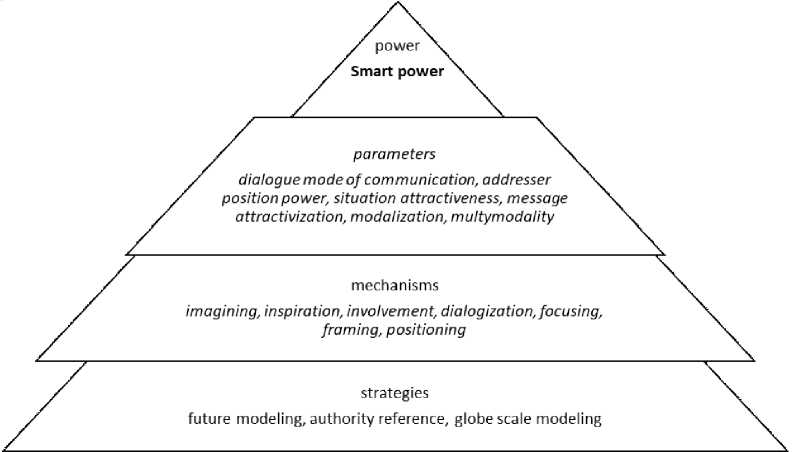
Fig. 3. The STT smart power tools modeling of examples 1 and 2
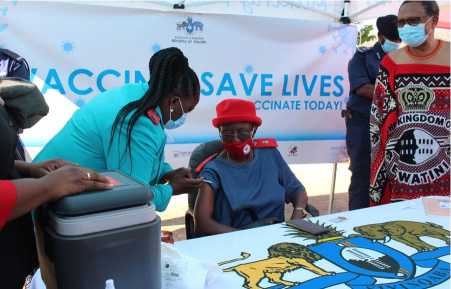
Fig. 4. Example 3: Vaccines save lives. Vaccinate today!
These vaccines will help to save lives as the country anticipates a third wave of transmission (III).
The soft power of this example is demonstrated by the top state officials publicly vaccinating who have sufficient authority for the population to follow them. The external parameters such as addresser’s position power, situation attractiveness initiate the process of involving the addressee in the desired action. The goal of the campaign is the fight against COVID-19. The internal parameters include message attractivization, tensity. The attractiveness of the message from example 3 can be traced in the discourse process of a large-scale campaign for saving lives by vaccinating (Vaccines save lives), which translates the values of life, health and safety. The parameter of tension characterizes the degree of intensity of an utterance and can be traced within the framework of modalization of discourse, representation of expressiveness, evaluativeness, tonality of discourse [Serebrennikova, Shoshin, 2020, p. 246]. The tension is manifested by the appeal to the value of life and the call to be vaccinated. The mechanisms of personalization, imagining, positioning are manifested both in the verbal-graphic code and extralinguistically in the actions of the organizers and participants of the information-medical campaign. The symbolism and personification of the vaccine as the only means of saving and preserving life is demonstrated by the strategies of symbolization and personalization. The imagination of a model of future life without viruses and infections, the preservation of people’s lives is realized by the imagining mechanism. Personal-temporal deiktics (Vaccinate today!) offer a solution to the problem today through a direct appeal to the addressee. The discourse is logically finalized by constructing an action that is aimed at helping to reduce an epidemiologically dangerous situation.
Example 4 demonstrates the effect of soft power in a different way. The article says:
-
(4) ...Thе goal of the campaign is to increase awareness of and confidence in COVID-19 vaccinations

Fig. 5. Example 4: Vaccination is hope, strength, love, protection


for refugee, immigrant, and migrant communities and their families”(IV).
The soft power of this example is revealed through the synergy of pictures expressing love, close relationships between people of different genders, different ages and different ethnic groups and short statements, positioning what is vaccination. These statements are designed to construct a positive attitude of the addressee to the problem, based on universal human values. A presupposition is created to express these feelings during vaccination as protection from illness, death, separation. The addressee horizon of expectations acts as a promoting external parameter, background knowledge of the situation is the basis of communication.
The goal of the campaign is to bring the community into the process that creates buy-in and reduces isolation:
-
(5) With that in mind, IDEO.org worked directly with community members to create campaigns that were meaningful and effective (IV).
The internal parameters that create soft power for example 3, are multimodality and patterning. The multimodality is created by the synergy of the meaning of the picture and the text, the patterning separates individual meanings from each other in posters that are similar in form, but in essence different. The frames are created linking vaccination and the highest universal axiological values as protection, responsibility, family, love, as a Discourse Technology of Effective Communication health, when framing and focusing mechanisms are activated. The brevity of the proposed formulas contributes to better memorization and consolidation as indisputable truths. The discourse is finalized by constructing new value pairs through the strategy of axiological shift. The translated values include hope for a better future without diseases; the willpower to resist the disease; love for the beloved ones, expressed in their protection from the infection by vaccination; moral duty to stop infection by vaccination.
Pay attention to the soft power tools model of examples 3 and 4 in Figure 6. The deepest level of tools include external and internal parameters which get verbalization by linguocognitive mechanisms and discursive strategies that are at the external level, located at the bottom in the Figure 6.
The hard power expresses direct instructions based on high social status and powerful position of the addresser. The orders are presumed being undisputable, unquestionable and must be executed. The functioning of hard power can be operationalized by linguocognitive mechanisms as focusing, framing, inspiration, positioning. They are based on such parameters as addresser’s position power, addressee’s expectations, situation attractiveness, message attractivization, modalization, multimodality. The action of hard power is shown in examples 5 and 6 (see Figs. 7, 8).
The hard power of example 5 is revealed through an order, expressed in the form of a quick
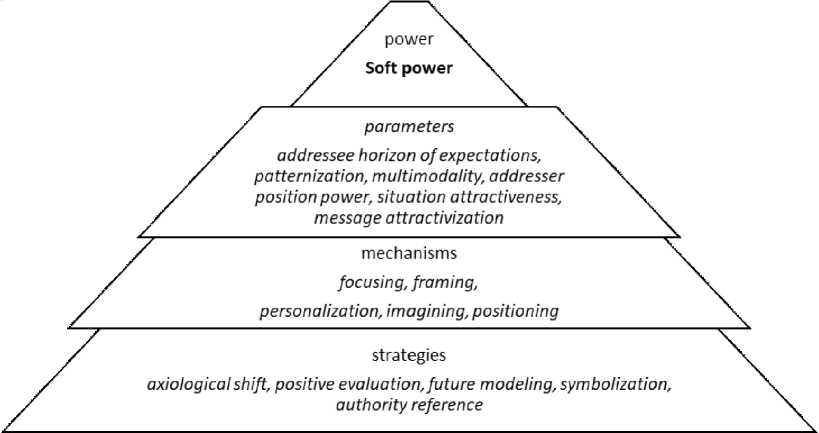
Fig. 6. The STT soft power tools modeling of examples 3 and 4

VACCINATE
YOUR FAMILY
Fig. 7. Example 5: Vaccinate your family guide to action, clearly indicating what to do with no alternative. There is no further explanation why this should be done. The external parameters are addresser’s position power, addressee’s horizon of expectations, situation attractiveness, since the addresser has sufficient authority and status to give orders and instructions, and the addressee is ready to obey, agrees with the dominant position of the addresser and is inclined to accept the “rules of this game”. If one reads the article on the Internet site, one finds that:
-
(6) ...The goal of the campaign is to support our collective understanding of how best to combat misinformation about health topics, whether it’s through new audience strategies or new approaches to measuring the impact of fact checks (II).
The internal parameters include message attractivization, modalization, multimodality, which are explained by the general interest in the topic of vaccination against coronavirus during the pandemic lasting more than a year, the need to take various measures to prevent the spread of infection, various ways of presenting material for a deeper perception of information using different semiotic codes.
These parameters are activated by mechanisms of focusing, framing, positioning. The focusing mechanism helps to direct attention to the main idea – to protect oneself and others from the infection through vaccination. The framing mechanism limits the options – in order to get rid of the disease, only one way is offered – this is vaccination. The positioning mechanism (the subclass of unity) emphasizes the important role of the family. The discourse is finalized by highlighting the action that should save families, which indicates the transmission of family values, which are among the most significant values for most people.
The example 6 is not of pure hard power because it includes an exclamation ( Show that you value vaccines! ), a statement ( Vaccines save lives ), and a call to action ( Order pins today ), as you can see in Figure 8.
The hard power of this example is constructed through three sentences that create a chain of ideas leading to the desired, planned action. The article says:
-
(7) Pins may be placed on clothing, uniforms, lab coats, tote bags, or backpacks to show your support for vaccines (VI).
Hence, the goal of the campaign is to show support for vaccines. The external parameter

(situation attractiveness) and the internal parameters (message attractivization, multimodality, modalization) are synergistically combined in the graphical layout of the central message, highlighted in black ( Vaccines save lives ). The exclamation ( Show that you value vaccines! ) is located on a red background in the upper position, which logically implies its initial reading. In the bottom position there is the call itself ( Order pins today ). The font size and thickness are also different, and the central message is not only of the largest font, but also occupies two lines, which implies its focus position. The immunize.org website below suggests that more detailed information can be obtained there by activating an incentive-to-action strategy.
The focusing mechanism helps to emphasize the lettering of the badge that advertises Vaccines save lives. The inspiration mechanism, which is not inherent in hard power, invites to show how vaccination can be appreciated, namely, to order badges with this inscription, which occurs through the use of a motivation strategy. There is a transition to the activation of the strategy of an axiological shift, the highest value of health is transformed into the material value of possessing a badge and demonstrating one’s social position. The discourse is finalized by the urge to buy a badge with the inscription about vaccination in as a Discourse Technology of Effective Communication order to show others their loyalty to this action, as one of the ways to value health and life.
Pay attention to the hard power tools model of examples 5 and 6 in Figure 9. At the deepest cognitive level of tools one can see external and internal parameters which get verbalization by linguocognitive mechanisms and discursive strategies in discourse.
The example 10, which clearly reveals the synergy of the action of the discourse powers through attractivity, attraction process [Iakoba, 201 9a, p. 228], is presented below. The attractiveness of a situation is understood as an external parameter, a modeling property, a characteristic of discourse, which constitutes a condition for efficiency. An effective media discourse models a cognitively indefinite situation in the real world as clearly attractive. The attractiveness determines the presence/ appearance/creation of such a situation in media discourse, which contributes to drawing attention, activating intelligence, generates interest, it is associated with the discourse emergency. The attraction process of a message is revealed as an internal parameter of the STT, it is defined as a process controlled by the inherent attractor and the corresponding combination of powers, explaining the stable intensification of the recipient’s perception, the attraction meaning
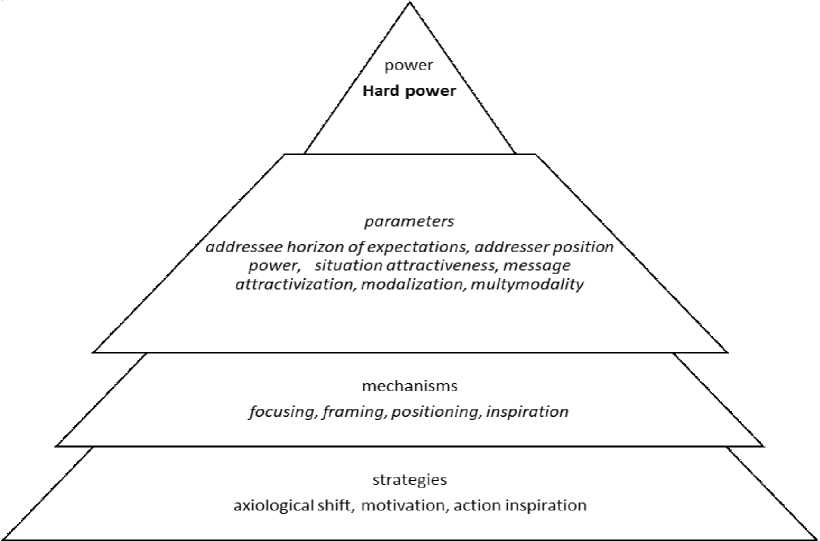
Fig. 9. The STT hard power tools modeling of examples 5 and 6
dominance. Thus, attraction process and attractiveness are considered as a paradigm of categories of STT for managing a communicative situation, interconnected according to the principle of causation, contributing to the emergence of a synergistic effect, which leads to the optimization of communication, which can be traced in example 7 in Figure 10.
Some more samples are presented below. The information about the reasons of this campaign was explained like this:
-
(8) The Africa Centres for Disease Control and Prevention (Africa CDC) and pan-African operator MTN Group today launched a joint campaign – “One More Push” – to encourage people across the continent to not give up in the fight against COVID-19, and to continue to wear their masks, wash their hands and practice social distancing (VII);
-
(9) As we continue with the distribution of vaccines across the continent, we all need to keep focused on overcoming COVID-19,” said Dr Nkengasong. “We implore all of Africa’s people to keep it up – let’s all give it one more push (VII).
The first sentence in example 7 (One more push) is designed by soft power, it is based on an intense positive attraction, intentionally aimed at stimulating action, achieving the desired results based on voluntary participation, sympathy and attractiveness. The second sentence (Everywhere you go) is constructed by a smart power, it is intentionally aimed at controlling the trajectory of discourse, contributing to a shift in the argumentative path of conceptualization and evaluation; recodes individual and social consciousness; offers the best “right” solution. The third sentence (Keep it to save lives) is intentionally aimed at the maximum degree of impact, promotes unambiguous rational, emotional summing up to the final conclusions; leaves no room for axiological choice; gives a mindset for one possible solution. Thus, the triple discourse influence is softly, hardly and smartly aimed at the widest range of possible addressees, is focused at attracting attention in different ways, based on the attractiveness of the situation and the attraction of the message, which synergistically creates the maximum efficiency of communication.
Thus, the synergy of attractiveness and attraction process of example 7 allows us to manage and redirect the addressee’s attention, activate their interest, imagination, and intellect. In creating attraction, the magnetism of communication process dominates. It is a conscious choice of the addresser and it is capable to direct a semantic trajectory of discourse, to deep the value level of conceptualization and significance.
Conclusions
The STT was created as a discourse technology to make communication more effective and productive. It gives opportunity to analyze different discourses intentions, destinations, values, implicit latent impacts integrated, taking into account the parameters, an addresser position, an addressee position, a discourse process, its powers, mechanisms and strategies. It becomes important to understand

Fig. 10. Example 7: One more push. Everywhere you go. Keep it to save lives. Keep it up for Africa
and critically interpret the information in the modern media space, that is aimed at the intellect of the addressee, “smartly” influencing the mind, values and assessments, shifting the focus of attention, constructing and framing discourse events through playing with hidden meanings. The media space can be parameterized for effective interaction between the addresser and the addressee by means of the STT. The gradation of the influencing potential of the discourse is expressed in three variants of the STT: 1) the basic variant based on smart power; 2) the variant with the dominance of soft power; 3) the variant with the dominance of hard power. There are mixed types or all the variants are used together.
The discourse powers are graded in terms of flexibility, softness and hardness of action. The nature of the STT impact is achieved by a flexible combination of powers on a value-acceptable basis, both on the rational-pragmatic controlled by consciousness, and on the subconscious in a person: archetypal, emotional and psychophysiological, for example, based on imagination and sense-rhythmic modulations.
The STT includes 12 internal and external parameters: the attractiveness (attraction process) of the situation, the strength of the position of the addresser, the horizon of the addressee’s expectations, the communication mode, message attractiveness, harmonization, sense-rhythmic modulations, multimodality, patterning, modulation, tension, synergy. The external parameters of the technology depend on the addresser, influence the addressee, orienting their interpretive processes in the right direction. The internal parameters of the technology give power to the discursive position, which constructs discourse in the intellectual media space.
Linguocognitive mechanisms are activated by the powers of discourse, which contribute to destination, communication efficiency, eventivity. The action of 12 mechanisms was revealed: involvement, defocusing, dialogization, imagining, inspiration, metaphorization, personalization, positioning, reframing, spin-doctoring, focusing, framing.
Prospects for media discourse tuning are seen in the further development of smart technological discourse monitoring and management in a competitive media space, taking into account the factors of nonlinearity, attraction, axiometry. It is also promising to deepen the analysis of the external and internal discursive parameters in their relationship in the construction of the discourse powers; methodology development for media discourse effectiveness monitoring in terms of its power potential.
Список литературы “Smart tuning” as a discourse technology of effective communication (on the material of the coronavirus vaccination media discourse)
- Arutyunova N.D., 1988. Tipy yazykovykh znacheniy: Otsenka. Sobytie. Fakt [Types of Linguistic Values: Assessment. Event. Fact]. Moscow, Nauka Publ. 341 p.
- Berger P., Luckman T., 1995. Sotsialnoe konstruirovanie realnosti. Traktat po sotsiologii znaniya [Social Construction of Reality. A Treatise on the Sociology of Knowledge]. Moscow, s. n. 323 p.
- Demyankov V.Z., 2001. Sobytiynost v yazyke sredstv massovoy informatsii [Eventivity in the Language of the Media]. Yazyk sredstv massovoy informatsii kak obyekt mezhdistsiplinarnogo issledovaniya: tez. dokl. Mezhdunar. nauch. konf., filol. f-t MGU im. M.V. Lomonosova (25-27 okt. 2001) [The Language of the Media as an Object of Interdisciplinary Research. Abstracts of the International Scientific Conference, Philology Faculty of Lomonosov Moscow State University (October 25-27, 2001)]. Moscow, Izd. dom Moskov. gos. un-ta, pp. 59-60.
- Derrida Zh., 1992. Pis'mo yaponskomu drugu [Letter to a Japanese Friend]. Voprosy filosofii [Philosophy Questions], no. 4, pp. 53-57.
- Dijk T.A. van. 2013. Diskurs i vlast. Reprezentatsiya dominirovaniya v yazyke i kommunikatsii [Discourse and Power. Representation of Dominance in Language and Communication]. Moscow, Librokom Publ. 344 p.
- Fairclough N.L., 1989. Language and Power. London, Longman. 259 p.
- Auconnier G., Turner M., 2006. Mental Spaces: Conceptual Integration Networks. Cognitive Linguistics: Basic Readings. Berlin, Walter de Gruyter GmbH & Co. KG, pp. 303-371.
- Foucault M., 1996. Volya k istine: po tu storonu znaniya, vlasti i seksual 'nosti. Raboty raznykh let [The Will to Truth: Beyond Knowledge, Power and Sexuality. Works of Different Years]. Moscow, Kastal Publ. 448 p.
- Haken G., 1980. Sinergetika [Synergetics]. Moscow, Mir Publ. 404 p.
- Iakoba I.A., 2017. Lingvokognitivnye parametry diskursa v tekhnologii «Umnaya nastroyka» [Linguocognitive Parameters of Discourse in the Smart Tuning Technology]. Irkutsk, Izd. dom. IRNITU. 189 p.
- Iakoba I.A., 2019a. Aktualizatsiya attraktivizatsii v mediynom reklamnom diskurse [Actualization of Attraction in Media Advertising Discourse]. Teoriya yazyka i mezhkulturnaya kommunikatsiya [Theory of Language and Intercultural Communication], no. 1 (32), pp. 227-235.
- Iakoba I.A., 2019b. Vneshnie i vnutrennie parametry mediynogo diskursa [External and Internal Parameters of Media Discourse]. Uchenye zapiski Petrozavodskogo gosudarstvennogo unstituta [Scientific Notes of Petrozavodsk State University], no. 3 (180), pp. 94-100.
- Ilyin V.V., 2005. Aksiologiya [Axiology]. Moscow, MGU. 216 p.
- Nye J.S., 2004. Soft Power: The Means to Success in World Politics. New York, Public Affairs Group. 191 p.
- Phillips L., Jorgensen M.V., 2004. Diskurs-analiz. Teoriya i metod [Discourse Analysis. Theory and Method]. Kharkiv, Gumanitarnyy Tsentr. 336 p.
- Plotnikova S.N., 2011. Tekhnologizatsiya diskursa v sovremennom obshchestve: kollektiv. monogr. [Technologization of Discourse in Modern Society. Collective Monograph]. Irkutsk, IGLU. 320 p.
- Serebrennikova E.F., 2013. Aksiologicheskaya parametrizatsiya sotsial'nogo diskursa [Axiological Parametrization of Social Discourse]. Vestnik Irkutskogo gosudarstvennogo lingvisticheskogo universiteta, no. 3 (24), pp. 13-18.
- Serebrennikova E.F., Shoshin A.A., 2020. Diskurs empatii: ot opredeleniya k vektoram modelirovaniya v mediynom kommunikativnom prostranstve [Discourse of Empathy: From Definition to Vectors of Modeling in the Medical Communicative Space]. Teoriya yazyka i mezhkul'turnaya kommunikatsiya [Theory of Language and Intercultural Communication], no. 2 (37), pp. 243-254.
- Stepanov Yu.S., 1995. Alternativnyy mir, diskurs, fakt i printsip prichinnosti [Alternative World, Discourse, Fact and the Principle of Causality].
- Yazyk i nauka kontsa XXveka: sb. st. [Language and Science of the Late Twentieth Century. Collection of Articles]. Moscow, RGGU, pp. 34-72.
- Tsurganova E.A., 2001. Retseptivnaya kritika [Receptive Criticism]. Nikolyukin A.N., ed. Literaturnaya entsiklopediya terminov i ponyatiy [Literary Encyclopedia of Terms and Concepts]. Moscow, Intelvak Publ., pp. 872-875.
- Vodak R., 2011. Kriticheskaya lingvistika i kriticheskiy analiz diskursa [Critical Linguistics and Critical Analysis of Discourse]. Politicheskaya lingvistika [Political Linguistics], no. 4 (38), pp. 286-291.

